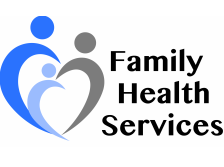Diabetes News – November 2021
November is Diabetes Awareness Month
This year’s focus is on prediabetes and preventing diabetes.
Prediabetes is a serious health condition where your blood sugar levels are higher than normal, but not high enough yet to be diagnosed as type 2 diabetes. According to the CDC, more than 1 in 3 U.S. adults have prediabetes—that’s 88 million people—but the majority of people don’t know they have it.
The good news is that by making small healthy lifestyle changes, it is possible to prevent type 2 diabetes and even reverse your prediabetes.
Here are some tips to help manage prediabetes and prevent diabetes.
- Take small steps. Making changes to your lifestyle and daily habits can be hard, but you don’t have to change everything at once. It is okay to start small. Remember that setbacks are normal and do not mean you have failed—the key is to get back on track as soon as you can.
- Move more. Limit time spent sitting and try to get at least 30 minutes of physical activity, 5 days a week. Start slowly by breaking it up throughout the day.
- Choose healthier foods and drinks most of the time. Pick foods that are high in fiber and low in fat and sugar. Build a plate that includes a balance of vegetables, protein, and carbohydrates. Drink water instead of sweetened drinks.
- Lose weight, track it, and keep it off. You may be able to prevent or delay diabetes by losing 5 to 7 percent of your starting weight.
- Seek support. It is possible to reverse prediabetes. Making a plan, tracking your progress, and getting support from your health care professional and loved ones can help you make the necessary lifestyle changes.
- Stay up to date on vaccinations. The COVID-19 (booster shot, if eligible) and flu vaccines are especially important for people who may be more likely to get very sick from COVID-19 or the flu, such as people with diabetes.
(Source: National Institute of Diabetes and Digestive and Kidney Disease https://www.niddk.nih.gov and American Diabetes Association https://diabetes.org)
The Diet-Betus – our version of recipe of the month
Fall Harvest Roasted Butternut Squash and Pomegranate Salad
Prep Time 15 mins
Cook Time 30 mins
Total Time 45 mins
Ingredients
- 2tablespoon extra virgin olive oil
- 1small butternut squash, halved, peeled, and cut into 1/4 inch half circles (substitute Acorn squash or pumpkin, as desired)
- 2tablespoons honey
- 1/2cup raw pepitas
- 1teaspoon ground cinnamon
- 1/4teaspoon cayenne pepper
- 1head kale, shredded
- 4cups shredded brussels sprouts
- arils from 1 pomegranate
- 4-6fresh figs (optional)
- 1/2cup shredded gouda cheese
Pomegranate Vinaigrette
- 1/4cup extra virgin olive oil
- 1shallot, thinly sliced
- 1tablespoon chopped fresh sage
- 1/4cup pomegranate juice
- 2tablespoons balsamic vinegar
- 2tablespoons honey
- kosher salt and black pepper
- 1pinch crushed red pepper flakes
Instructions
- Preheat the oven to 425 degrees F. On a baking sheet, toss together the butternut squash, 1 tablespoons olive oil, 1 tablespoon honey, 1/2 teaspoon cinnamon, and a pinch each of salt and pepper. Transfer to the oven and roast for 25-30 minutes, flipping halfway through cooking, until the squash is tender.
- Line a separate baking sheet with parchment paper. Add the pepitas, 1 tablespoon olive oil, 1 tablespoon honey, 1/2 teaspoon cinnamon, the cayenne, and a pinch of salt. Arrange in a single layer. Transfer to the oven and bake for 8-10 minutes or until the pepitas are toasted. Watch closely!
- Meanwhile, in a large salad bowl, combine the kale, brussels sprouts, and pomegranates.
- To make the vinaigrette. Heat the olive oil in a medium skillet over high heat. When the oil shimmers, add the shallots and sage, cook until fragrant, 2-3 minutes. Remove from the heat, let cool slightly. Add the pomegranate juice, balsamic vinegar, and honey. Season with salt, pepper, and crushed red pepper flakes.
- Pour the vinaigrette over the salad, tossing to combine. Add the roasted squash, gently tossing. Top the salad with toasted pepitas, figs, if using, and cheese. Eat and enjoy!
Notes
To Make Ahead: This salad can be made and assembled through step 4. Combine the greens, pomegranates, and roasted squash in a salad bowl, but leave the seeds out. Store the bowl in the fridge, covered, and keep the seeds and vinaigrette separate. Then, just before serving, warm the vinaigrette and toss the salad together.
Leftovers: leftovers will keep well for 2-3 days. This salad is delicious warmed or chilled.
(Source: https://www.halfbakedharvest.com)
Community offerings:
Due to coronavirus/COVID 19, many community offerings have been changed, postponed, or canceled. Please call the number listed for the event to verify availability, dates, and times.
If you have questions regarding Coronavirus/COVID-19 please call 1-833-4-ASK-ODH (1-833-427-5634)Or, go to https://www.cdc.gov/coronavirus/2019-nCoV/index.html or https://coronavirus.ohio.gov/wps/portal/gov/covid-19/.
Diabetes Empowerment Education Program (DEEP)
COST: Free
CONTACT: Tina Elmlinger 419-624-1856
The Diabetes Empowerment Education Program [DEEP] is offered every Wednesday for six weeks. Good attendance is important. This free program is for diabetics, pre-diabetics, and spouses or caregivers of a diabetic. Residents of Erie County, aged 60 or older, please call 419-624-1856 to register.
Diabetes Support Group – Firelands Regional Medical Center
The Diabetes Support Group presented by Jean Feick CNP, CDE, meets the third Wednesday of each month Sept–November and January-May from 12:00pm –1:00pm. This meeting is free to the public and no registration is required. Attendees are welcome to purchase lunch in the hospital cafeteria and come to the adjacent Cafeteria Meeting #1. A different topic will be reviewed each month. If you have questions, please contact the Diabetes Education Department at 419-557-6992.
HEALTH & WELLNESS SCREENINGS
Offered by Firelands Regional Medical Center. You must pre-register for all lab work at 419-557-7840.
Sandusky Health & Wellness
Firelands Regional Medical Center South Campus
1912 Hayes Avenue Sandusky, OH
Saturday, November 6
7:00 am -9:30 am
Sandusky Health & Wellness
Firelands Regional Medical Center South Campus
1912 Hayes Avenue Sandusky, OH
Saturday, December 4
7:00 am -9:30 am
Health & Wellness Screenings include:
- Complete Blood Count with Metabolic & Lipid Panel (No Eating or Drinking for 12 Hours – Water Allowed – includes liver and kidney function studies, fasting blood sugar, thyroid, cholesterol, HDL/LDL, and triglyceride levels along with a complete blood count.) – $45
- Hemoglobin A1C (A three-month report card on how well your blood sugars have been running. A test used to diagnose diabetes and/or to evaluate how well your treatment plan is working.) – $25
- PSA (Prostate Specific Antigen)- $30
- Vitamin D – $35
- TSH – $25
Diet and exercise are an essential part of diabetes management, so is routine testing.
The A1C test—also known as the hemoglobin A1C or HbA1c test—is a simple blood test that measures your average blood sugar levels over the past 3 months. It’s one of the commonly used tests to diagnose prediabetes and diabetes, and is also the main test to help you and your health care team manage your diabetes. Higher A1C levels are linked to diabetes complications, so reaching and maintaining your individual A1C goal is important if you have diabetes.
Last quarter, 70% of our diabetic patients had an A1C of less than 9%. Talk with your provider to discuss the right options for you.



